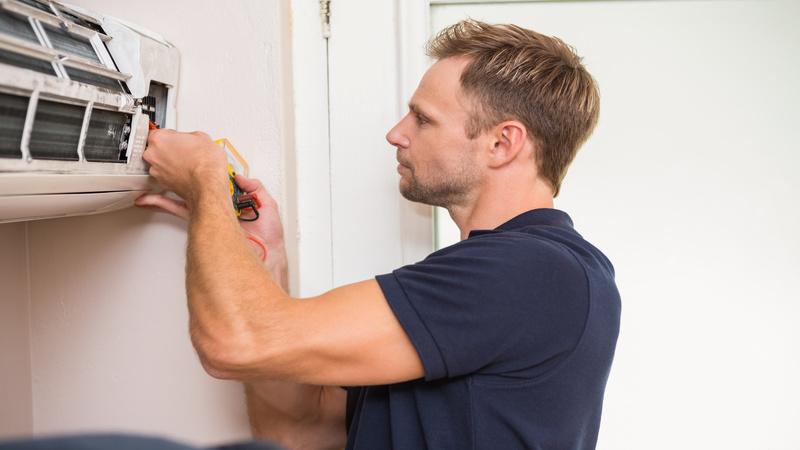In terms of residential comfort, a limited number of systems are as vital as your heating, ventilation, and air conditioning system. Grasping what HVAC is can be the primary step towards ensuring a pleasant living environment throughout the year. Whether you're facing the winter chill or the oppressive summer heat, having a trustworthy heating and cooling system is essential for keeping an comfortable indoor atmosphere. In this article, we will explore everything you need to know about HVAC systems, from their core functions to frequent problems that can occur and how to successfully address them.
Many homeowners might consider to address HVAC repairs on their own, especially when faced with little problems or common maintenance tasks. Nonetheless, discerning when to make a DIY attempt and when to enlist the help of a specialist can allow you to avoid both time and expenses. click for info will investigate some of the prevalent HVAC issues, suggest strategies for maintaining your system's performance, and underscore the significance of expert assistance in certain situations. In conclusion, this guide, you will be more assured in overseeing your HVAC system while knowing when to consult the specialists.
Grasping Heating, Ventilation, and Air Conditioning Technologies
HVAC is an acronym for Heating, Ventilation, and Air Conditioning, and plays a crucial role in maintaining indoor comfort in houses and commercial spaces. Such systems are designed to regulate heat and ventilation, ensuring that spaces remain agreeable regardless of outdoor conditions. A standard heating and cooling system typically includes components such as a heater for heating, an cooler for cooling, and a system to circulate air to circulate air and improve indoor settings.
The working of these systems is based on the concepts of heat transfer and airflow dynamics. Heating is performed through multiple methods, such as natural gas, electricity, or heating oil, while cooling is primarily accomplished through refrigerants circulating in the system. Air exchange ensures fresh air enters a space while removing stale air, which is crucial for comfort and health. Grasping how these components work collaboratively can help owners effectively manage their HVAC systems and recognize potential issues early on.
Consistent service and understanding of how to use HVAC can lead to improved efficiency and extended lifespans. Easy actions such as changing air filters frequently, ensuring vents unobstructed, and scheduling professional check-ups can substantially enhance system performance. By grasping the basics of HVAC, homeowners can make informed decisions about their heating and cooling needs, contributing to a more comfortable and energy-efficient living setting.

Frequent HVAC Problems and Resolutions
One of the most frequent problems homeowners face is a deficiency of heat or cooling. This problem can stem from multiple sources, such as a soiled air filter, which limits airflow and reduces the HVAC system's efficiency. To fix this, consistently examine and change air filters every 1 to 3 months, according to usage. Additionally, inspecting the thermostat settings and making sure that the unit is set to the appropriate temperature can assist alleviate the issue. If issues continue, it may be essential to inspect for refrigerant leaks or reach out to a technician.
Another typical issue is unusual noises produced by the HVAC system, such as thumping, whistling, or grating sounds. These noises can indicate unsecured parts, worn-out bearings, or issues with the compressor. https://rentry.co/ks8smusq can begin by tightening loose components and making sure that all access panels are tightly in place. If the noises persist, it might be time to contact an HVAC technician to determine and resolve any fundamental mechanical issues.
Lastly, inconsistent temperatures throughout the home can be a annoying problem. This can result from insufficient insulation, blocked vents, or issues with the ductwork. To boost airflow, ensure that vents are not obstructed by furniture or other obstacles. Repairing any leaks in ductwork can also promote more uniform heating and cooling. For more serious airflow problems or persistent discomfort, it may be wise to consult a specialist to evaluate and improve the overall HVAC system and home insulation.
Optimizing Energy Use and Maintenance Recommendations
To improve the performance of your HVAC system, consider installing a digital thermostat. These devices allow you to configure specific levels for multiple times of the day, improving energy use while providing comfort. For example, you can program your thermostat to reduce heating or cooling when you are away, thus saving energy and decreasing your utility bills.
Consistent maintenance is crucial for keeping your HVAC system operating efficiently. Plan seasonal tune-ups to confirm that all components are in proper condition. During these check-ups, professionals can service coils, check ducts, and replace filters, which helps prevent larger issues down the line. Additionally, change your air filters every one to three months to support airflow and enhance indoor air quality, directly impacting the efficiency of your system.
Be mindful of your HVAC system's insulation and sealing. Ensure ducts are sealed properly to stop air leaks and consider adding insulation to areas like the attic and walls to keep energy costs down. Enhancing your home’s insulation helps your HVAC system work less hard to maintain the set temperature, which leads to overall energy savings. Regularly inspect and check areas around your home to provide a comfortable and energy-efficient living environment.
